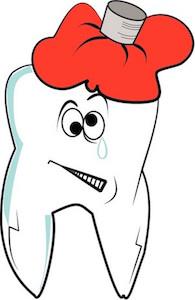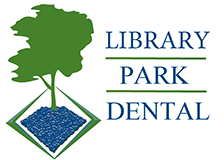5 Oral Habits You Need to Change
 1. Piercings
1. Piercings
People often think only of the immediate pain and swelling from a piercing, but it is the long term effect that is more important. According to the American Dental Association, studies have shown that there can be problems with salivary flow, with damage to the teeth (cracked enamel, fractured teeth), with receding gums, and with scar tissue formation.
If you chose to have a tongue or lip piercing, be sure to come in for a visit twice a year so that we can keep a close eye on your teeth.
2. Smoking
Why do we talk to you about smoking when you visit the dentist? Because the tar and other ingredients in tobacco can cause tongue, gum, cheek, and other oral cancers. Gum recession is linked to smoking, in part due to the limiting effect on the growth of blood vessels. This means that the gums cannot heal themselves as quickly. This means that the failure rate for implants is higher and that any healing for gum surgeries or after a tooth is pulled is much longer. Additionally, the tars, nicotine, and other chemicals in tobacco stain your teeth.
There is no safe amount of smoking, but if you do smoke, please be sure to let us know so that we can thoroughly examine your mouth for signs of cancer and to keep an eye on your gum recession.
3. Sugary Drinks Including Sports Drinks
Both soda and sports drinks are sugary and acidic. They combine to erode the tooth’s surface. This can lead to weakened enamel, staining, sensitivity to heat/cold, and decay. Studies indicate that you should consume soda and sports drinks in moderation, you should rinse with water after drinking, and you should wait at least 30 minutes after drinking to brush your teeth. This time will allow softened enamel to re-harden.
If you drink soda or sports drinks frequently, talk to us about whether you should use an acid-neutralizing, remineralizing toothpaste to help re-harden the soft enamel and protect your teeth.
4. Using Your Teeth as a Tool
We’ve all done it….used our teeth to tear open a package, to rip tape, or even to open a bottle. Teeth are not designed to do that. Tiny chips in the enamel can provide openings for bacteria and plaque to develop, which leads to tooth decay. Sometimes a tooth can fracture or have a large chip. This could ultimately result in the need for a root canal and a crown or even tooth loss and an implant.
Grab some scissors or a bottle opener. And if you accidentally chip something, contact us right away so that we can hopefully keep a small problem from becoming a big problem.
5. Pacifiers/Binkies
Sucking is a normal, natural reflex. Babies even suck their thumb in the womb! Sucking on pacifiers or binkies helps babies to feel secure. Many infants and very young children suck on their thumb or fingers as they relax and go to sleep.
Pacifiers should never be dipped in honey, sugar, or any other sweet liquid before giving it to an infant. Pacifier use should be gradually lessened to only times before sleep. Prolonged use of a pacifier or thumb sucking can affect the proper growth of the mouth, the alignment of teeth, and it can cause changes in the roof of the mouth. For this reason, especially after the age of 4, thumb sucking and the use of pacifiers should be discouraged.
We recommend that your child’s first dental visit be between eighteen months and two years. That way we can monitor the growth and development of their teeth and they can learn to be comfortable with our office and our staff. We will discuss pacifier use or thumb sucking with you at that time so that your child’s mouth can develop properly.
